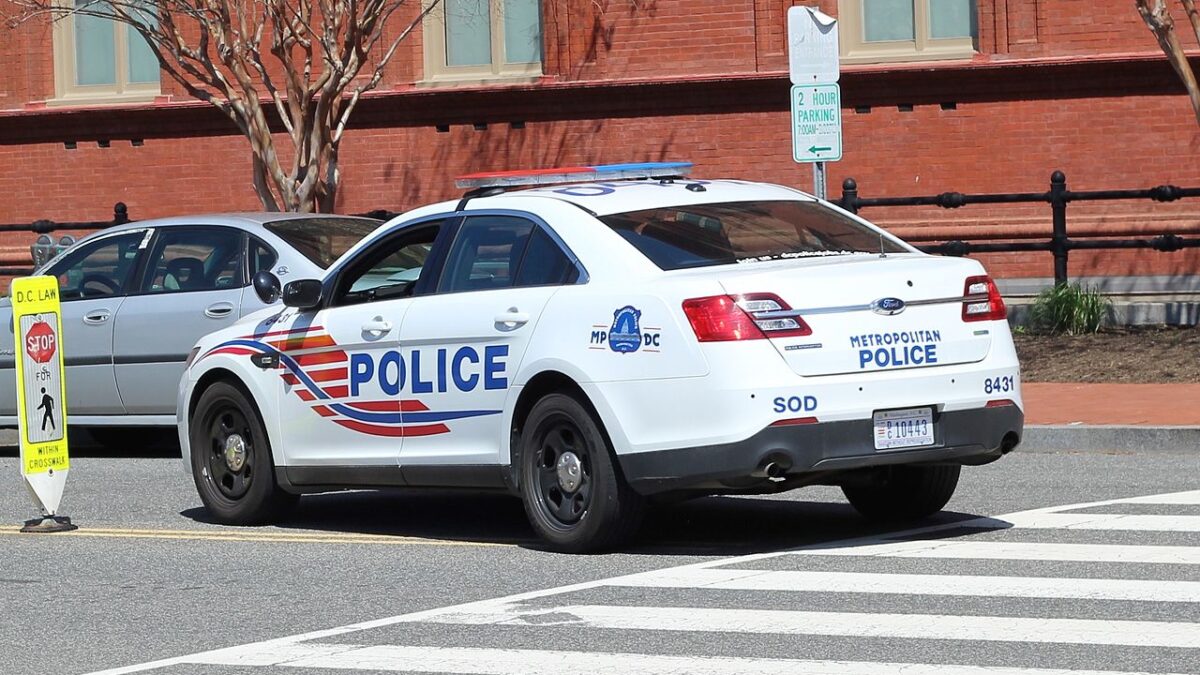
In Philadelphia in January, 25-year old Milan Loncar — a recent Temple University graduate and husband to be — was walking his dog when he was brutally gunned down in the streets of Philadelphia, the victim of an armed robbery that he did not resist. He died while still holding the leash of his rescue dog.
The gunman had a violent criminal history and should have been in jail the night of Loncar’s murder, but he had been released on reduced bail just two weeks prior. Due to the crack work of Philadelphia’s Finest, the 20-year old habitual criminal was apprehended within hours of the crime. But what if the police were no longer on the job?
We should anticipate more senseless crimes like this in the days ahead fueled by radical public policies that call for defunding law enforcement and eliminating cash bail. The proponents of these policies envision a utopian state in which criminals repent, victims forgive, and we all merrily sit around the community campfire singing “Kumbaya.” The reality is likely to be far different.
The left has gained the power of the White House as well as of Congress. Their new Wild West is upon us. Buckle up, it’s going to be a rough ride.
Economic Concerns
Defunding and otherwise reducing law enforcement is likely to have profound, reactive effects across society.
Homeowners are unlikely to be passive in protecting themselves, their families, and their property. They can be expected to expeditiously fill the vacuum. This means an increased number of armed individuals with limited training in gun safety.
Not only is this likely to result in more accidental fatalities, but such individuals are likely to be less judicious than law enforcement in the use of lethal force. Hence, it is unrealistic to believe that defunding law enforcement will lead to a decrease in the number of avoidable fatalities.
Defunding law enforcement should be expected to increase the number of individuals engaged in criminal behavior because this reduces the cost of such behavior. Criminals can reasonably expect a lower likelihood of being apprehended and successfully prosecuted for their crimes. Eliminating cash bail only exacerbates this problem. The result is a perfect storm of more crime, fewer police officers, and an increased number of poorly trained gun owners, all of which can be expected to increase the number of avoidable deaths.
To the extent that there are economies of scale in provisioning law enforcement (the average cost of law enforcement decreases with the quantity of law enforcement supplied), defunding the police is likely to raise the overall cost of supplying a given level of community protection. This higher cost is likely to translate into fewer resources dedicated to providing community protection.
Defunding law enforcement will result not only in a decrease in the number of police officers on the job but a decrease in their wages and salaries. Factors tend to flow to their highest rates of return. The more proficient law enforcement personnel will be attracted to the higher wages and better working conditions prompted by the increased demand for private security.
Less proficient law-enforcement personnel will have fewer outside opportunities and therefore will remain on the job. The result is fewer Joe Fridays and more Barney Fifes. Hence, defunding law enforcement is likely to lead not only to a decrease in the overall number of police officers but a decrease in the average proficiency of police officers. This will cause more avoidable deaths that will trigger an increase in taxes to pay for costly litigation, financial settlements, and higher rates for liability insurance.
Defunding law enforcement is precisely the opposite of what the nation needs. Compensation for law enforcement should increase to offset the increased risk and decreased job satisfaction. Police officers are also subject to a higher likelihood of criminal charges as a result of community sentiment turning against them and a new wave of leftist prosecutors that impose more exacting standards for the use of lethal force.
In facing a violent criminal, police officers face something of a “Hobson’s choice.” If they act too slowly, they risk their own life, and if they act too quickly they risk the unjustified death of the suspect. The litigation, both civil and criminal, that follows in this latter case limits their career opportunities in the best state of the world and their freedom in the worst. All of this for a median annual salary of less than $58,000.
The record number of law enforcement retirements over the past year is a testament to this new reality. In New York City, retirements are up 75 percent, disproportionately among the most experienced officers and detectives. This does not take into account an alarming 200 percent increase in law enforcement personnel that have filed for retirement and are awaiting pension board decisions.
Concerns have also been raised that there are too many “bad apples” in law enforcement. Even if this were true, you don’t secure higher-quality apples by paying less for them. If you want more proficient law enforcement, pay them more, not less. Tasked with the impossible, law enforcement deserves our respect, not our derision.
Public Policy Concerns
It is difficult to envision how a public policy of defunding law enforcement could pass an objective cost-benefit test given the multitude of adverse effects that it is likely to engender. Any policy change should be evaluated based on economic efficiency and social equity. The policy of defunding law enforcement fails on both metrics
The adverse economic effects associated with defunding law enforcement are only exacerbated by their disparate, community-wide impacts. Higher-income households can be expected to take prompt action to mitigate the increased risk to their families and property that results from defunding law enforcement. This may take the form of increased use of private security, either at the individual household or neighborhood level.
Lower-income households will not be as fortunate. They will have little choice but to fend for themselves or bear the brunt of the unavoidable increase in crime.
Insurance rates can be expected to rise in lockstep with the risk of theft and property damage, assuming that insurance is even available given the high risk of loss. It should therefore not be surprising that the lower-income communities are where we will see the largest percentage decrease in property values and the highest percentage increase in insurance rates.
Defunding law enforcement is a highly regressive public policy precisely because of its grossly disparate, adverse impacts. The highest costs will be borne by the most economically disadvantaged communities.
The number of avoidable deaths is likely to increase due to fewer and less-proficient police officers on the job and an increased number of firearms in untrained hands. This is why policymakers must consider both the first-order and the second-order effects of defunding law enforcement.
I do not question that in select cases social workers and mental health professionals may be able to diffuse the severity of a situation that the presence of law enforcement might only aggravate. These benefits, which have yet to be rigorously quantified, must be balanced against the greater risk of placing these social workers and mental health professionals directly in harm’s way with law enforcement responsible for their safety.
To Do No Harm
Every just society has a solemn responsibility to continuously and objectively reevaluate when lethal force by law enforcement is warranted. Any disparities in the use of such force that cannot be explained by differences in crime rates across minority and non-minority subgroups should be rigorously scrutinized and corrective action taken.
Nonetheless, defunding law enforcement is a radical and myopic policy that fails any objective cost-benefit test and is found wanting on social-equity grounds.
Defunding law enforcement will not only cost more lives, increase crime, and lower the overall standard of living, but it will also disproportionately harm our poorest communities that lack the resources to insulate themselves from its harmful and likely tragic consequences. The guiding principle for policymakers is no different than that for physicians under the Hippocratic Oath: First, do no harm.









